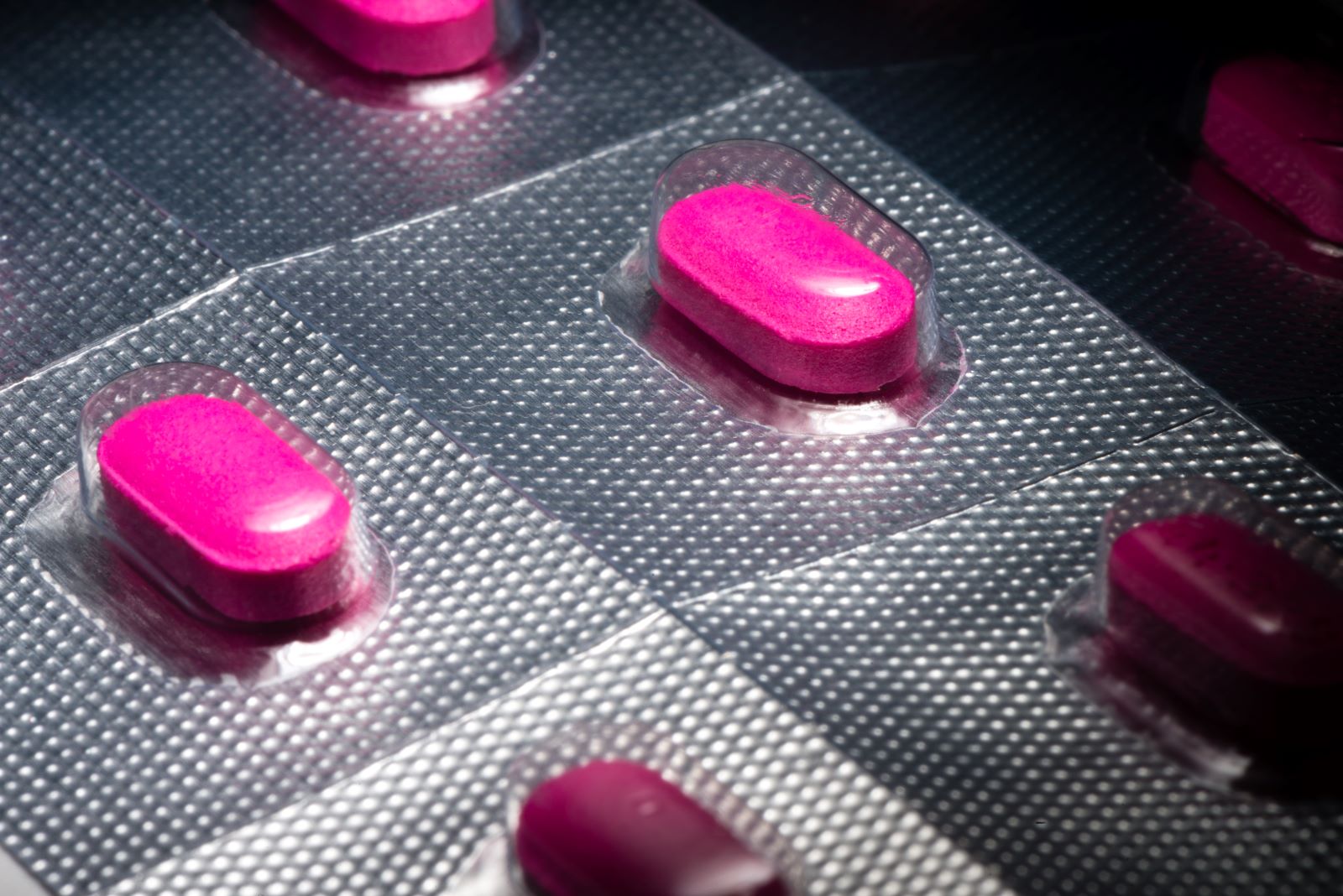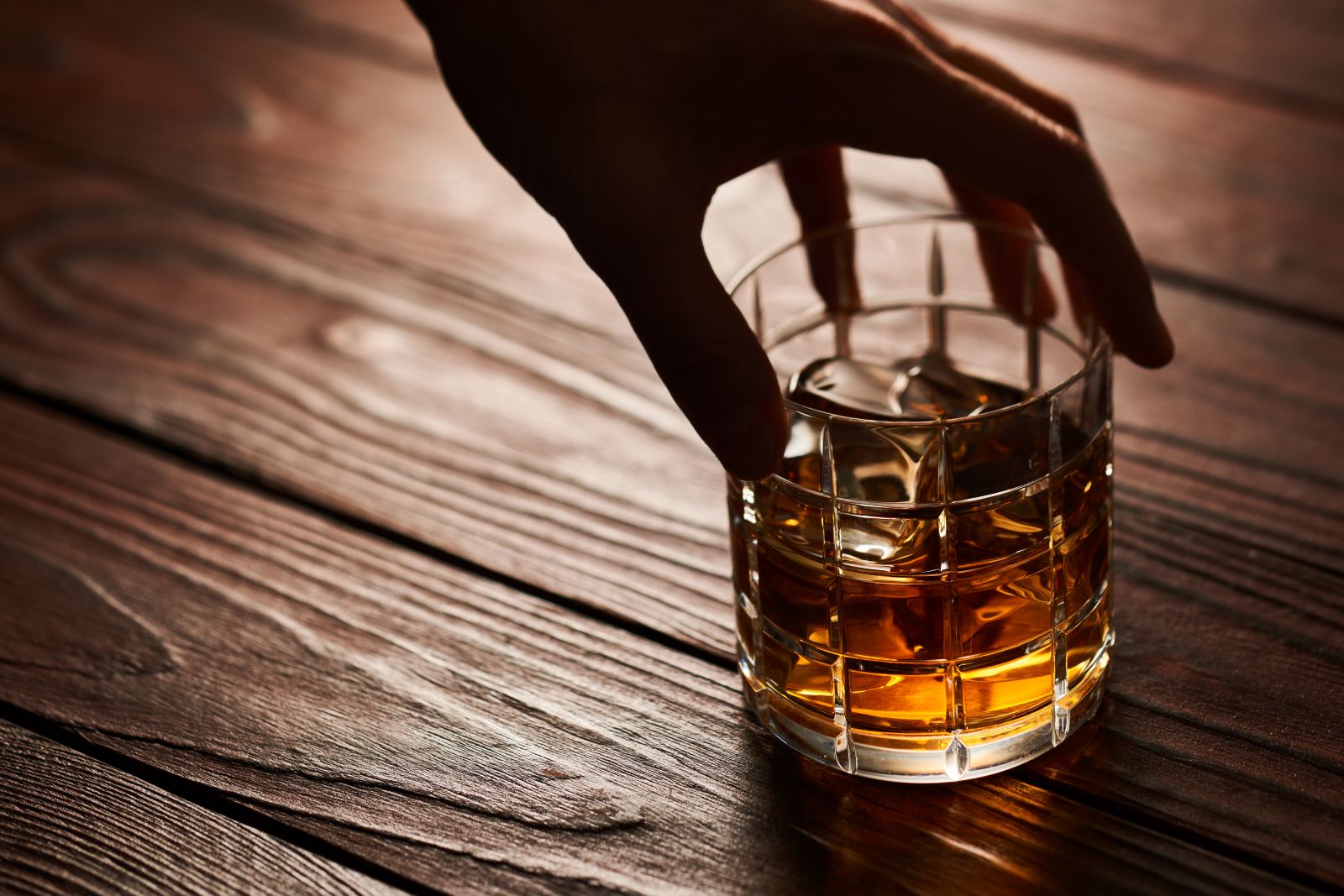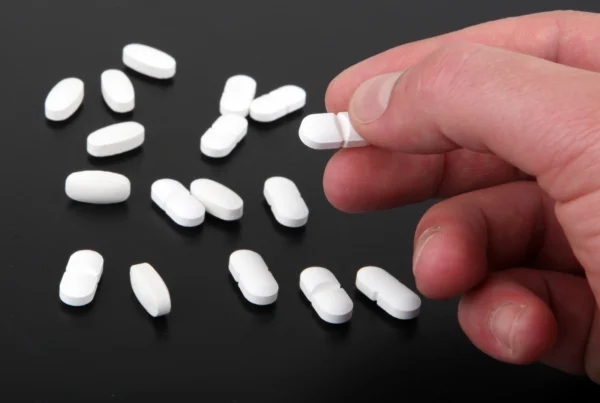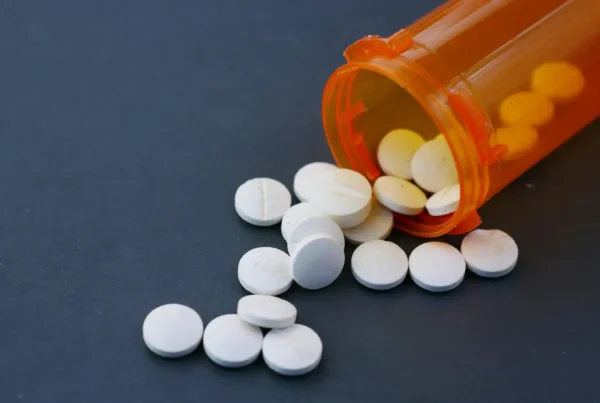
Table of Contents
If you’ve ever gotten a case of the sniffles in the middle of pollen season, you’re probably already very familiar with Benadryl® and the host of other antihistamines that help with seasonal allergies. But for many of the millions of people who need these important medications for at least part of the year, there’s one burning question: Is it safe to take Benadryl® and drink alcohol?
There are many good reasons for asking this question. After all, for many people with allergies, using Benadryl® or other antihistamines is a regular thing, something they need to do every year, for weeks or even months at a time. And, while plenty of medications come with warnings against using alcohol or other drugs at the same time as the medication, many people are told that a little alcohol at the same time as those medications is safe.
So, what’s the story with Benadryl®? Is it safe to take Benadryl® and drink, or to take a Benadryl® after you’ve been drinking? It may not be as safe as many assume. Let’s take a deeper look.
Is Drinking While Taking Benadryl® Safe?
No. Unfortunately, while we wouldn’t recommend mixing alcohol with any antihistamine, Benadryl® and alcohol are one of the more dangerous substance combinations for many reasons.
If you’ve ever taken Benadryl® and noticed that it made you a little drowsy or sleepy, or even made you fall asleep outright, you’re probably already familiar with one of the main reasons taking Benadryl® and drinking can be dangerous. Both drugs slow your central nervous system (CNS) which can be a serious risk if you depress its function too much.
Newer antihistamines come with less risk because they perform their function without affecting the central nervous system as much.
However, partially because Benadryl® is an older, more heavily studied, and better-understood drug compared with a lot of the newer antihistamines, it’s also a lot more commonly included in other medications or combination medications that address more than one set of problems or symptoms.
The generic name of Benadryl®, diphenhydramine, is found in a wide range of other medications, both internal and topical.
The generic form of the drug is also approved as a sleep aid; the brand name Benadryl®, isn’t, however, and shouldn’t be used this way.
Both the generic diphenhydramine and Benadryl® are generally unsafe to combine with alcohol [1] because of how they work in your body, and because of the difficulty associated with keeping yourself safe and staying on top of situations when your central nervous system isn’t working at peak efficiency. That’s also one of the reasons that many doctors and allergy specialists recommend using something other than Benadryl® during the day, if you can find an effective alternative.
 Common Problems With Combining Benadryl® and Alcohol
Common Problems With Combining Benadryl® and Alcohol
There are many specific risks that come from combining Benadryl® and alcohol. These aren’t all of the risks, but they are some of the more concerning or serious risks you should consider before combining Benadryl® and alcohol [2]. Remember, combining these drugs doesn’t necessarily mean taking them at the same time. If you consume alcohol a couple of hours before taking Benadryl®, that counts. The opposite also counts, taking Benadryl® a few hours after drinking, especially if you are still feeling the effects of the alcohol at all, can also be dangerous.
Increased Sedation
The main problem in many cases is that Benadryl® and alcohol both slow down your central nervous system, as we’ve already discussed. That can increase the level of sedation you would normally expect from either drug on their own, and sometimes can also cause an increased cumulative level of sedation. That means that drinking and taking Benadryl® can lead to more sedation than you would expect from just adding both together. That’s because the two drugs do work in slightly different ways, so the total sedation is more complete than either drug would cause on their own.
Increased sedation can mean you just go to sleep, but it can also mean difficulty thinking or reasoning through problems while conscious, slower heart rate or breathing, and many other problems. Remember that your central nervous system is responsible for a lot of functions that you aren’t consciously aware of and that slowing your central nervous system [3] can also affect those unconscious functions.
Risk Of Losing Consciousness
Not everyone’s risk of losing consciousness is the same, but some people can be at very high risk of passing out, fainting or falling into an unusually deep sleep as a result of combining Benadryl® and alcohol. Losing consciousness when you would normally be awake comes with a wide range of risks, especially if you are in public, driving, or doing anything that could turn dangerous if you lose control when it happens.
If you lose consciousness once as a result of combining Benadryl® and alcohol, you’re also at increased risk of it happening again.
Increased Risk For Older Adults
As you age, your body’s ability to break down chemicals, including both alcohol and Benadryl®, can be impaired. That’s a big part of why it’s so common for your alcohol tolerance to decrease as you age. Your body isn’t able to eliminate the drug as quickly, so it builds up in your system faster and stays there longer. That means that adults have increased risks from combining Benadryl® and alcohol as they get older and that you may start seeing more consequences even if you combined the drugs before without having serious side effects.
Learning And Memory Problems
One of the big effects of Benadryl® on the body is that the drug blocks a specific neurotransmitter. That neurotransmitter, Acetylcholine, which is critical for memory and learning. If you’ve felt foggy or like it was harder to remember what happened after taking Benadryl®, this may be part of why. Alcohol also impairs memory formation, and the lingering effects of alcohol on your body can make learning more challenging even after the primary effects of the drug wear off.
Combining the two drugs can lead to an increased risk of blocking memory and learning. Both effects may linger slightly longer than the drugs themselves, as your body returns to normal chemical balance and function.
Misuse As A Sleep Aid
Taking Benadryl® and alcohol together can make a lot of people fall asleep, which has led to some people abusing the combination to fall asleep. Unfortunately, this isn’t just potentially dangerous, it can also reduce the overall quality of your sleep and leave you feeling more tired than you would expect after a full night’s sleep. Done several times in a row, you might find yourself feeling increasingly worse and more of the after-effects of both drugs with each repetition.
Even worse, these problems can make you feel like your insomnia is worse, or like you need the boost to get to sleep faster, which can potentially lead to chemical dependence and other problems in addition to poor sleep.
Potentially Linked Dementia
There have been studies linking the use of anticholinergic drugs, which include Benadryl®, to an increased risk of developing dementia. Especially when the drugs are taken regularly over a long period of time. Similarly, excessive alcohol consumption is also linked to an increased risk of dementia. Combining the two, while not specifically studied, may further increase the risk of dementia.
Potential To Cause More Severe Dehydration
Both Benadryl® and alcohol cause dehydration, which means that taking them together can increase the level of dehydration.
Worse, if you’re already dehydrated when you take the medications, you are likely to get more so. Because both drugs also suppress your central nervous system, you may not feel thirsty when you should, or you may struggle to drink enough to overcome the dehydrating effects of the drugs.
Increased Potential To Interact With Other Medications
Both Benadryl® and alcohol have a pretty high risk of interacting with other medications. That means that taking them both can significantly increase your risk of a negative medication interaction if you take any other medications at the same time. Additionally, many other medications, especially liquid medications, contain a small amount of alcohol, which can increase interaction risk with Benadryl®, as well as increase your overall alcohol consumption without you noticing.
Are You Struggling with Mixing Benadryl® And Alcohol?
There are a lot of good reasons to want to stop mixing these two drugs, even if your consumption has been controlled and you’re still able to function normally despite the negative side effects. Unfortunately, because using these drugs this way can be highly habit-forming, it can be a challenge to stop taking these drugs, much less to stop taking them at the same time. Taking either drug can also be a trigger to take the other in people who have been using the medications together for a long time.
The good news is that there is a lot of support out there and help for people in your exact position. If you’re struggling to stop taking Benadryl® and alcohol together or struggling with either of these drugs on their own, contact Ocean Recovery. We can help with a wide range of addictions and will help you identify your unique causes of addiction, triggers for addictive behaviors, and more.
Sources:
[1] Pearson, S. PharmD. GoodRx. (2023, January 3). Can I Drink Alcohol With Allergy Medications like Benadryl, Claritin, or Zyrtec? Retrieved from https://www.goodrx.com/classes/antihistamines/drinking-alcohol-with-allergy-meds-benadryl-zyrtec on 2023, March 6.[2] MedicalNewsToday. (2018, February 28). Can you drink alcohol while taking antihistamines? Retrieved from https://www.medicalnewstoday.com/articles/321078#ten-risks on 2023, March 6.
[3] Healthline. (2018, April 26). Is It Safe to Mix Benadryl and Alcohol? Retrieved from https://www.healthline.com/health/allergies/benadryl-alcohol#benadryl-and-alcohol on 2023, March 6.

 Common Problems With Combining Benadryl® and Alcohol
Common Problems With Combining Benadryl® and Alcohol


